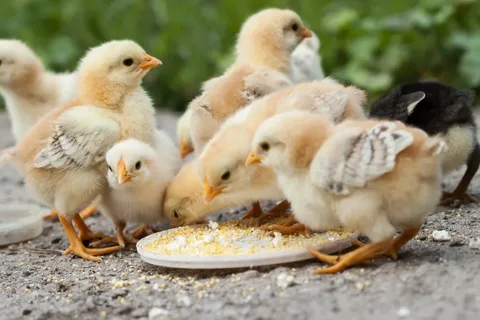If you’ve always dreamed of starting a farm from scratch but don’t know where to begin, this beginner’s guide is for you. Starting a farm is an exciting and rewarding venture, but it can also be a daunting task for beginners. You’ll need to learn about everything from selecting a location to deciding what crops or animals to raise.
Starting a farm from scratch can be an exciting and rewarding venture for beginners. Here is a quick summary of the key steps involved: First, begin by identifying your goals and available resources. Determine the type of farm you want to establish, whether it’s focused on crops, livestock, or a combination. Assess the land you have or plan to acquire your budget, and the necessary equipment. This evaluation will help you understand your starting point and make informed decisions.
Next, develop a solid business plan. This plan should outline your farm’s mission, goals, target market, marketing strategies, and financial projections. It will serve as your roadmap to success and can be crucial for securing funding if needed.
Acquire essential knowledge and skills by attending workshops, seeking mentorship, and conducting thorough research on farming techniques, best practices, and industry trends. Remember to start small and gradually expand as you gain experience and confidence. With dedication, perseverance, and a passion for farming, you can successfully start your own farm from scratch.
[Beginners Guide] How To Start A Farm From Scratch
Starting a farm from scratch can be a rewarding but challenging venture. Here is a beginner’s guide to help you get started:
Step 1: Planning
Starting a farm is an exciting but challenging endeavor, and proper planning is crucial to its success. When considering what type of farm to start, think about your personal interests and the local market demand.
Read Also: How To Start Fish Farming In Florida [Practical Steps]
Do you want to focus on growing fruits and vegetables, raising livestock, or both? Keep in mind that each type of farm has its unique requirements, so it’s essential to research and learn everything you can about your chosen area of farming.
Next, determine the crops or animals you want to raise. This decision will depend on several factors, including your location, the climate, and soil type.
Research the best crops or animals suited for your area and consider the demand for these products in the market.
You need to think about how much land you’ll need to run your farm. This will depend on the size and scale of your operation, the type of crops or animals you’re raising, and the number of employees you plan to hire.
Read Also: How To Start Farming With No Money In South Africa (Zero Capital)
You may also need to consider zoning laws and regulations in your area before purchasing or leasing land.
Step 2: Conduct Market Research:
After developing a basic plan for your farm, the next step is to conduct market research. Market research will provide valuable insights into the demand for your products and the prices you can expect to receive.
It will also help you identify potential customers and their preferences, which will inform your farming decisions.
Read Also: How To Start Farming With No Money [Beginners Guide]
One way to conduct market research is by talking to other farmers in your area. Ask them about their experiences selling their products and what types of products are in demand.
They may also provide valuable information on pricing, distribution, and marketing strategies.
Visiting local markets is another great way to gain insight into the demand for your products.
Observe what products are selling well, the prices they are selling for, and the types of customers who are buying them. You can use this information to find market opportunities and gaps.
Read Also: [Beginners Guide] How to start Farming Business in Libya
Online research is also a valuable tool for conducting market research. Use online resources to gather data on market trends, consumer preferences, and competitors in your area.
This information can help you develop a marketing strategy that targets your ideal customers and differentiates your products from those of your competitors.
Step 3: Choose A Farming Niche
When choosing a farming niche, it’s important to consider your interests, skills, and available resources. If you’re passionate about working with animals, for example, livestock farming may be the best fit for you.
Read Also: [Beginners Guide] How To Start Farming In Botswana
On the other hand, if you have a green thumb and enjoy growing plants, crop farming may be more your style.
Crop farming involves growing crops for food, fiber, or other uses. Different crops have different requirements in terms of soil type, climate, water, and fertilizer.
Some popular crops include fruits such as apples, oranges, and strawberries; vegetables like lettuce, tomatoes, and cucumbers; grains such as corn, wheat, and rice; and nuts like almonds and walnuts.
Read Also: [Beginners Guide] How To Start Farming In Cabo Verde
Livestock farming, on the other hand, involves raising animals for meat, dairy, or other products. Some common livestock include cows, pigs, chickens, and goats.
Raising livestock requires a different set of skills and resources than crop farming. You’ll need to consider factors such as housing, feed, and veterinary care when choosing a livestock farming niche.
It’s also worth considering whether you want to specialize in a particular type of crop or livestock, or whether you want to diversify your farm’s offerings.
Read Also: [Easy Tips] How To Start Farming In Mauritius Step By Step Guide
Specializing in a particular crop or livestock can help you become an expert in that area, but it also comes with risks. Diversifying your farm’s offerings can help mitigate risks and ensure a more stable income stream.
Step 4: Develop A Business Plan
Developing a business plan is an essential step in starting a farm. It’s important to base your business plan on your chosen farming niche, as this will help you identify the specific strategies, resources, and goals that are most relevant to your farm.
Your business plan should outline your farm’s mission statement, marketing strategies, organizational structure, financial projections, and operational procedures.
Read Also: [Beginners Guide] How To Start Farming In Malawi
It should also include a detailed analysis of your target market, as well as an assessment of the competition and potential challenges you may face.
When developing your business plan, it’s important to consider the unique aspects of your chosen farming niche.
For example, if you’re focusing on crop farming, you’ll need to consider factors such as seed selection, irrigation systems, and pest control measures.
If you’re focusing on livestock farming, you’ll need to consider factors such as feed sources, animal health, and transportation logistics.
Read Also: How To Start Farming Business In Liberia
Your business plan should also include a detailed financial analysis, including projected income and expenses, cash flow projections, and break-even analysis.
This will help you identify any potential financial risks and develop strategies to mitigate them.
Step 5: Choose a Suitable Location
Choosing a suitable location for your farm is critical to its success. The location you choose should be based on several factors, including the type of farming you plan to do, the availability of water, soil quality, climate, and proximity to markets or transportation networks.
For crop farming, you’ll want to choose land with fertile soil and access to water for irrigation. For livestock farming, you’ll need to consider factors such as grazing land, shelter, and proximity to processing facilities.
Read Also: [Complete Guide] How to Start Farming in Tunisia
You’ll want to consider the local zoning laws, regulations, and permitting requirements that may impact your farming operation.
This includes understanding any environmental regulations that may apply to your farm, as well as the potential impact of nearby industrial or residential developments on your farming operations.
Step 6: Secure Funding
Funding is an essential element in starting a farm, and securing the necessary capital can be a significant challenge.
Read Also: [Complete Guide] How To Start Farming In Lesotho
There are several financing options available for new farmers, including loans from banks, government grants and subsidies, and private investors.
To secure funding, you’ll need to have a solid business plan that outlines your farm’s objectives, revenue projections, and operational costs.
You’ll also need to demonstrate your ability to manage the farm effectively, including your knowledge of the industry, the unique challenges of your chosen farming niche, and your ability to adapt to changing market conditions.
Read Also: [Guide] How To Start Farming In Algeria Step By Step
Before seeking funding, you should conduct thorough research to identify the most suitable financing options for your farm.
This includes evaluating the interest rates, repayment terms, and other conditions associated with different loan or investment options.
Once you’ve identified potential funding sources, you’ll need to prepare a comprehensive application package that includes your business plan, financial projections, and other supporting documents. You may also need to participate in interviews or provide additional information to help secure financing.
Read Also: [Best Guide] How To Start Farming In USA
Step 7: Acquire Equipment and Supplies
Once you’ve secured funding and chosen a location, the next step is to acquire the necessary equipment and supplies for your farming operation.
The specific equipment you’ll need will depend on your chosen farming niche, but it may include tractors, irrigation systems, animal housing and feeding equipment, and tools for planting, harvesting, and processing crops.
You should also consider the cost and availability of supplies such as seeds, fertilizer, feed, and other inputs necessary for your farming operation.
Read Also: How To Start Farming Business In Zimbabwe [Beginners Guide]
You may be able to reduce costs by sourcing materials locally, purchasing in bulk, or using alternative farming methods such as organic or regenerative farming.
Step 8: Start Planting Or Raising Animals
With your equipment and supplies in place, you can start planting or raising animals on your farm. This process will depend on your chosen farming niche and the specific crops or livestock you plan to raise.
For crop farming, you’ll need to prepare the soil, plant seeds, and manage the growth and development of your crops. This may include regular watering, fertilization, pest control, and harvesting.
Read Also: How To Start Farming In Gambia [Beginners Guide]
For livestock farming, you’ll need to provide appropriate feed, housing, and care to ensure the health and well-being of your animals.
Step 9: Maintain Your Farm
To ensure the long-term success of your farm, it’s essential to maintain its infrastructure and operations.
This includes regular maintenance of your equipment and buildings, as well as ongoing management of your crops or livestock.
You’ll also need to consider issues such as soil erosion, water conservation, and pest control, which can impact the productivity and sustainability of your farming operation.
Regular monitoring and analysis of your farm’s performance can help you identify areas for improvement and optimize your farming practices.
Read Also: How To Start Farming Business In Uganda With No Money [Step By Step]
Step 10: Marketing Your Farm Products
Marketing is a critical component of any farming operation, as it allows you to reach potential customers and sell your products.
Effective marketing strategies can help you build a strong brand, differentiate your products from competitors, and reach new customers.
To market your farm products, you can utilize a variety of channels, including local markets, online platforms, and direct sales to restaurants, grocery stores, and other retail outlets.
You’ll also need to consider issues such as pricing, packaging, and labeling, which can impact the perceived value and quality of your products.
Benefits Of Farming
- Provides a source of food: Farming provides fresh and healthy food for individuals and communities.
- Creates job opportunities: Farming provides job opportunities for individuals and helps to support local economies.
- Promotes self-sufficiency: Farming allows individuals to be self-sufficient and reduces dependence on external sources for food.
- Supports environmental conservation: Farming can be done in a sustainable manner that helps to conserve the environment, promote biodiversity, and reduce carbon emissions.
- Promotes mental health: Farming has been shown to have therapeutic effects on mental health by reducing stress, anxiety, and depression.
Challenges Of Farming
- Weather conditions: Weather conditions such as droughts, floods, and extreme temperatures can negatively affect crop growth and livestock production.
- Market volatility: Fluctuations in market prices and demand can negatively impact profitability for farmers.
- High initial costs: Starting a farm can be expensive, with significant upfront costs for land, equipment, and supplies.
- Labor-intensive: Farming can be physically demanding and requires a lot of hard work and labor.
- Pest and disease management: Controlling pests and diseases is essential to maintaining healthy crops and animals, but it can be a significant challenge for farmers.
Best Practices Of Farming:
- Crop rotation: Crop rotation helps to maintain soil fertility, reduce soil erosion, and prevent disease and pest buildup.
- Water conservation: Water conservation practices such as drip irrigation and rainwater harvesting can help to reduce water usage and increase efficiency.
- Integrated pest management: Using a combination of cultural, biological, and chemical control methods can help to manage pests and diseases sustainably.
- Soil conservation: Practices such as cover cropping, reduced tillage, and the use of organic fertilizers can help to improve soil health and prevent soil degradation.
- Animal welfare: Providing appropriate housing, feeding, and healthcare for livestock helps to ensure their health and well-being and improve productivity.
Best Farming Niches To Start
- Organic farming: Organic farming is a niche market that involves growing crops or raising animals without the use of synthetic pesticides or fertilizers.
- Aquaculture: Aquaculture involves raising fish, shellfish, and other aquatic animals in a controlled environment.
- Agroforestry: Agroforestry involves combining trees and crops or livestock to create a sustainable farming system that benefits both the environment and farmers.
- Hydroponics: Hydroponics is a method of growing plants in nutrient-rich water instead of soil.
- Urban farming: Urban farming involves growing crops or raising animals in urban areas, typically in small spaces such as rooftops or balconies.
Where To Source For Funding To Start Farming
- Agricultural grants: Agricultural grants are available from government agencies, non-profits, and other organizations to support farming operations.
- Loans: Banks and other financial institutions offer loans to support farming operations.
- Crowdfunding: Crowdfunding platforms can be used to raise funds for farming operations from individuals or groups.
- Partnerships: Partnering with other farmers or businesses can help to pool resources and reduce costs.
- Personal savings: Personal savings can be used to finance a farming operation, but it may require significant upfront investment.
How to Start a Farm with No Money
Starting a farm can be a costly venture, but it is possible to start a farm with little to no money. Here are some pointers to get you going:
- Utilize free resources such as government grants and loans for farmers.
- Start small by growing a few crops or raising a few animals on land that you already have access to.
- Look for landowners who may be willing to lease or rent out their land to you at a low cost.
- Join a farm incubator program, which can provide access to land, equipment, and training.
I Want to Be a Farmer, Where Do I Start?
Starting a career in farming can be challenging, but it’s not impossible. Here are some steps to take:
- Determine what type of farming you want to pursue.
- Gain experience and knowledge by volunteering on a farm or working on a farm as an apprentice.
- Attend farming conferences and workshops to network and learn from other farmers.
- Create a business plan and seek funding.
- Find land and equipment to start your farm.
Farming for Beginners
Starting a farm can be a rewarding experience for beginners. Here are some pointers to get you going:
- Start with a small plot of land and a few crops or animals to gain experience.
- Research the best farming practices for your niche and seek guidance from experienced farmers.
- Invest in high-quality tools and equipment.
- Be patient and flexible as farming is a learning process.
- Consider joining a farming community to network and learn from other farmers.
Farming for Beginners PDF
A farming for beginners PDF can be a helpful resource for those just starting in farming. The PDF should cover the basics of farming, such as choosing a farming niche, developing a business plan, acquiring funding, and best farming practices.
The PDF may provide links to resources and organizations that can provide further guidance and support.
Factors to Consider When Starting a Farm
Starting a farm requires careful planning and consideration. Here are some factors to consider:
- Land availability and access
- Water and soil quality
- Climate and weather patterns
- Farming regulations and zoning laws
- Market demand for your products
- Start-up costs and funding sources
- Farming experience and knowledge
How to Start a Small Farm for Profit
Starting a small farm for profit requires strategic planning and execution. Here are some tips:
- Choose a profitable farming niche based on market demand and your skills and interests.
- Create a business plan with projections for the money and marketing plans.
- Utilize free resources such as government grants and loans for farmers.
- Invest in high-quality tools and equipment to increase efficiency and productivity.
- Seek guidance from experienced farmers and attend farming conferences and workshops.
Conclusion
Congratulations! You’ve now learned the basics of starting a farm from scratch. Remember, it takes time, dedication, and hard work to build a successful farm. But with patience, perseverance, and the knowledge you’ve gained from this guide, you can turn your dream of running a farm into a reality. Good luck!





